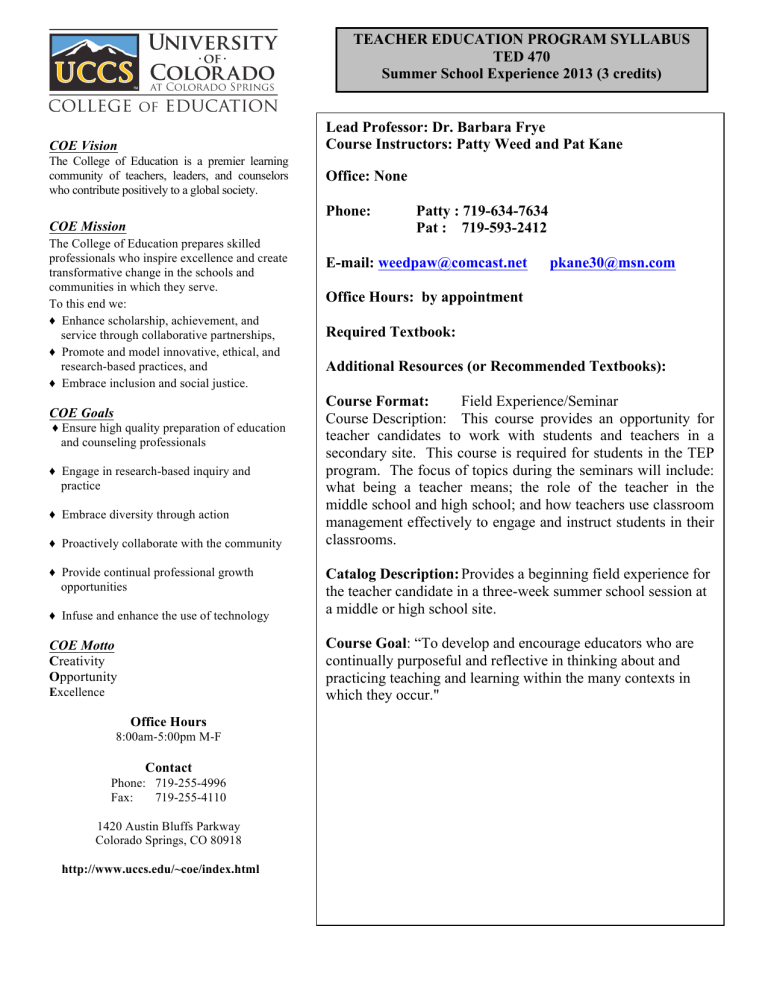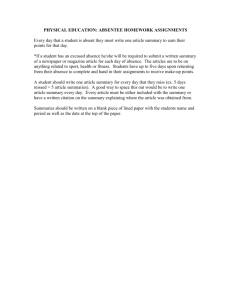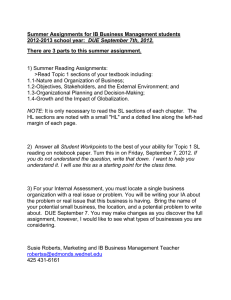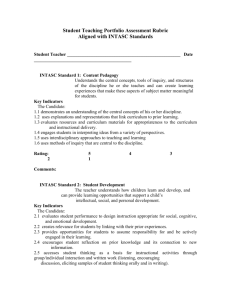Lead Professor: Dr. Barbara Frye Office: None

COE Vision
The College of Education is a premier learning community of teachers, leaders, and counselors who contribute positively to a global society.
COE Mission
The College of Education prepares skilled professionals who inspire excellence and create transformative change in the schools and communities in which they serve.
To this end we:
♦ Enhance scholarship, achievement, and service through collaborative partnerships,
♦ Promote and model innovative, ethical, and research-based practices, and
♦ Embrace inclusion and social justice.
COE Goals
♦ Ensure high quality preparation of education and counseling professionals
♦ Engage in research-based inquiry and practice
♦ Embrace diversity through action
♦ Proactively collaborate with the community
♦ Provide continual professional growth opportunities
♦ Infuse and enhance the use of technology
COE Motto
C reativity
O pportunity
E xcellence
Office Hours
8:00am-5:00pm M-F
Contact
Phone: 719-255-4996
Fax: 719-255-4110
1420 Austin Bluffs Parkway
Colorado Springs, CO 80918
http://www.uccs.edu/~coe/index.html
TEACHER EDUCATION PROGRAM SYLLABUS
TED 470
Summer School Experience 2013 (3 credits)
Lead Professor: Dr. Barbara Frye
Course Instructors: Patty Weed and Pat Kane
Office: None
Phone: Patty : 719-634-7634
Pat : 719-593-2412
E-mail: weedpaw@comcast.net
pkane30@msn.com
Office Hours: by appointment
Required Textbook:
Additional Resources (or Recommended Textbooks):
Course Format: Field Experience/Seminar
Course Description: This course provides an opportunity for teacher candidates to work with students and teachers in a secondary site. This course is required for students in the TEP program. The focus of topics during the seminars will include: what being a teacher means; the role of the teacher in the middle school and high school; and how teachers use classroom management effectively to engage and instruct students in their classrooms.
Catalog Description: Provides a beginning field experience for the teacher candidate in a three-week summer school session at a middle or high school site.
Course Goal : “To develop and encourage educators who are continually purposeful and reflective in thinking about and practicing teaching and learning within the many contexts in which they occur."
Course Objectives: Teacher candidates will:
1.
Recognize that the teacher works with learners to create environments that support individual and collaborative learning, encouraging positive social interaction, active engagement in learning, and self-motivation. (INTASC Standard #3 and Teacher Quality Standards II and
III)
2.
Understand that the teacher draws upon knowledge of content areas, cross-disciplinary skills, learns the community, and pedagogy to plan instruction that supports every student in meeting rigorous learning goals. (INTASC Standard #7 and Teacher Quality Standard I)
3.
Begin to develop an understanding of the differences between a middle level learner and a high school learner.
4.
Recognize and demonstrate the importance of being professional as it pertains to the role of teacher candidates/teachers, while working with students in assigned classrooms. (INTASC standard #9 and Teacher Quality Standard IV, V and VI)
5.
Document the key elements of a lesson plan in an observed lesson. (INTASC Standard #7 and
Teacher Quality Standards I and III)
Course Expectations: Teacher candidates are expected to come to class/seminar on time and to be thoroughly prepared with (a) daily journal entries completed, (b) weekly reflections emailed on time, (c) participation during seminars, (d) all assignments (notebook and classroom management summaries) turned in on time.
Technology Competencies.
It is expected that candidates begin our program with basic computing skills that include using Microsoft Word to write papers, accessing online research databases, and corresponding by email. Knowledge of the use of technology-supported multimedia, such as PowerPoint and other audio/video resources, is a plus; those who do not already have a working knowledge of their use will develop it over the course of their program.
Communications outside of class will be by email. All students must obtain a UCCS email address and check it regularly (at least every other day) so as not to miss announcements. An idea: if your UCCS address is not your primary one, have emails from it rerouted to the one you check daily. eCompanion & TaskStream Competencies: All faculty members in the Department of
Curriculum and Instruction are required to use eCompanion to manage their courses. This includes the syllabus, course schedule, and assignment criteria (if not detailed in the syllabus).
Students need to become familiar with document sharing, assignment drop-box, and the grade book. In addition to using eCompanion, TELP faculty are required to develop or identify core assignments that must be uploaded to TaskStream, out data management system. All TELP students are required to have TaskStream accounts.
Attendance, Preparation, and Participation: Students are expected to come to class on time and thoroughly prepared, meaning all assigned reading has been completed and questions on the reading have been brought to class; concepts, definitions, examples, and procedures presented in the text and previous classes are understood well enough to be discussed; individual or group assignments have been prepared; and the student is ready to engage in classroom activities.
Class participation is vital for acquiring the knowledge necessary to meet the course objectives.
Additionally, students' presence and participation contribute to an interchange of ideas and
2
experiences that benefit everyone. The instructor reserves the right to reduce a student's grade for consistent lack of participation.
Academic Honesty: Students are expected to adhere to the highest standards of academic honesty as outlined in the Spring 2013 course bulletin. Forms of academic dishonesty include, but are not limited to buying papers, copying paragraphs/pages of text/whole papers off the internet, or copying another student’s answers. In addition, in written assignments, sources must be cited and a reference page included. Citations must be in APA style and include author(s), year of publication, and page number if a direct quote is included. Academic dishonesty will result in the grade of a “0” on the assignment and/or in the course. The student may be reported to the Vice President for Academic Affairs for further action.
Person First Language: During your enrollment in this class, it is expected that you will reference individuals with disabilities using person-first language. Person-first language refers to identifying an individual as a human being – first , who possesses a physical and/or cognitive disability – second . Most importantly, person-first language upholds the dignity and worth of the individual. I will not accept labels such as, “SIED students”, “disabled students”, “PC students”, “SPED students”, etc. Please address individuals with disabilities using person-first language during class participation and in all written assignments.
Ethical Conduct: The responsibility for ethical conduct, academic honesty and integrity rests with each individual member of the UCCS community. The Student Codes and Academic
Policies (which may be found at http://www.uccs.edu/~dos/studentconduct/index.html
) are followed in this class. In general, academic dishonesty includes, but is not limited to, cheating on assignments or examinations, plagiarism (which means misrepresenting as your own any work done by another), misuse of academic materials, or interfering with another student’s work.
Violations of the honor code may result in dismissal from the program.
Diversity Statement: The faculty of the College of Education is committed to preparing students to recognize, appreciate, and support diversity in all forms – including ethnic, cultural, religious, gender, economic, physical, and intellectual – while striving to provide fair and equitable treatment and consideration for all. Any student who believes that he/she has not been treated fairly or equitably for any reason should bring it to the attention of the instructor.
Special Assistance: Reasonable accommodations will be made for students who have a documented disability, which interferes with completion of this course. It is your responsibility to request any accommodations before assignments are due. Please contact Disability Services
(255-3354) or the instructor if you have questions.
Military Students : Military students who have the potential to participate in military activities including training and deployment should consult with faculty prior to registration for any course, but no later than the end of the first week of classes. At this time, the student should provide the instructor with a schedule of planned absences, preferably signed by the student's commander, in order to allow the instructor to evaluate and advise the student on the possible impact of the absences.
In this course, the instructor will consider absences due to participation in verified military activities to be excused absences, on par with those due to other unavoidable circumstances such as illness. If, however, it appears that military obligations will prevent adequate attendance or performance in the course, the instructor may advise the student to register for the course at another time, when she/he is more likely to be successful.
3
Appeals: In any academic issue, including attendance decisions, students may exercise their right to appeal. Should the faculty member and student be unable to agree on appropriate accommodation under this policy, either party shall have the right to request mediation as outlined in the grievance policies of the College of Education and the UCCS Student Standards.
Assignments (graded activities):
You will be expected to prepare these assignments:
1.
Three one- page summaries based on observations of classroom management strategies and plans for instruction. (90 points)
2.
Three weekly reflections (90 points)
3.
Notebook of daily journal entries/artifacts (45 points)
4.
Documentation of observed Lesson Plan using TaskStream template (35 points)
*Rubrics are attached for each assignment.
Course Grading:
Attendance:
89-83%: 332-359
82-80%: 320-331
79-73%: 292-319
140 pts.
Projects: 260 pt.
The instructor will adhere to the following table when assigning letter grades for the course:
100-93%: 373-400
92-90%: 360-372
A
A-
B
B-
C
Course Calendar
Week
Week 1
Week 2
Readings
None
None
Content
Syllabus, Expectations,
Assignments,
Dispositions,
Classroom
Management and
Learning
Environments
(INTASC Standard 3 and Teacher Quality
Standards II and III)
Overview
Planning for
Instruction (INTASC
Standard 7 and
Teacher Quality
Standards I and III),
Dispositions
Assignments
Journal /notebook, reflection and summary
Walk-throughs
Journal/notebook, reflection, continue walk-throughs, and summaries
Week 3 None
Dispositions and professionalism,
Evaluation of Lesson
Plan Assignment
(INTASC Standard 4 and Teacher Quality
Notebook/journal, reflection, and continue walkthroughs
4
Due Date
Week 1:
Reflection #1 due on
Sunday, June 16
Week 2:
Reflection #2 due on
Sunday, June 23;
Classroom
Management
Summaries due on
Friday, June 21
Week 3:
Notebook graded
Wednesday or
Thursday, June 26 and
27;
Reflection #3 due on
Thursday, June 27;
Standards I, IV) Lesson Plan assignment due by
Wednesday or
Thursday, June 26 or
27th.
Rubrics:
Classroom Management Summaries: (90 pts)
Organization
(10)
All three summaries are clear, have an introduction and conclusion, and explain in detail the strategies used by the teacher. The effectiveness of the strategies for future implementation is explained. (10)
Content
(10)
Addresses all five
Performance
Indicators for
INTASC Standard
#3. (10)
Mechanics
(5)
On Time
(5)
No grammar or spelling errors in the three summaries. (5)
Each summary was on time to the site professor. (5)
Rubric for the three reflections: (90)
Organization
(10)
Content
10)
Mechanics
(5)
On time
(5)
No errors. (5)
All three of the summaries present strategies used.
Future implementation is discussed. An adequate introduction and conclusion are included in the summaries. (8)
Addresses a minimum of four
Performance
Indicators for
INTASC Standard
#3. (8)
One to two errors within the three summaries. (4)
One summary was late. (4)
The three reflections follow the format given.
Reflections are clear and coherent with a clear understanding of the importance of teaching.
(10)
The reflections are wellthought and address all five
Performance Indicators of
INTASC Standard 3
AND/OR three elements of
Teacher Quality Standard
I. (10)
All reflections were sent to site professor on time. (5)
Summaries are missing one or more aspect of the requirements. (6)
Addresses fewer than four
Performance
Indicators for
INTASC Standard
#3. (6)
Many errors in the summaries. (3)
Two or more of the summaries were late.
(3)
Reflections don’t follow one key aspect of the format, and/or they are not clear and logical with relevance to teaching. (8)
The reflections are wellthought and address a minimum of four
Performance Indicators of
INTASC Standard 3
AND/OR a minimum of two elements of Teacher
Quality Standard I. (8)
Few grammar/spelling errors. (4)
1 reflection was late. (4)
Reflections don’t follow the format and/or they are confusing and not clear.
(6)
The reflections are not well-thought and address fewer than four
Performance Indicators of
INTASC Standard 3
AND/OR fewer than 2 elements of Teacher
Quality Standard I. (6)
Many errors. (3)
2 to 3 reflections were late.
(3)
5
Notebook of Journal Entries/Artifacts Rubric: (45 pts.)
Organization and Content
(25)
10 detailed entries are listed and facts from the clinical teacher are included. Entries are very reflective in nature, analyze the teaching experience, and indicate how the applied experience will improve the teacher candidate’s own teaching.
(25)
Mechanics (10)
On Time (10)
No grammar or spelling errors. (10)
Notebook was on time and the teacher candidate had signed up ahead of time for the evaluation meeting.
(10)
Several errors. (8)
Notebook was not ready for grading on assigned date. (8)
Rubric for Lesson Plan Assignment: (35pts)
Lesson Plan (15) The teacher The teacher candidate clearly understands the lesson plan of the clinical teacher and can identify the key components of the
TaskStream Lesson
Plan Template.
(15) candidate clearly understands the lesson plan of the clinical teacher and can identify the majority of the key components of the
TaskStream Lesson
Plan Template.
(12)
Awareness (10)
Reflection (10)
Teacher Candidate is aware of what students are doing and responds to the students’ actions appropriately. (8)
The teacher candidate reflects on the classroom situation and issues, analyzing what might be done differently and what went well during the observed walkthrough portion of the lesson. (10)
Teacher candidate is aware of what is going on during the lesson, but is nonresponsive to some of the students’ behaviors and responses. (8)
The teacher candidate reflects on the classroom situation and issues which occurred during the observed walkthrough experience. (8)
9 to 10 entries are listed.
Entries show some reflection and analysis on the part of the teacher candidate. (20)
The teacher candidate does not have a clear understanding of the lesson plan of the clinical teacher, and cannot identify the key components of the TaskStream
Lesson Plan
Template. (9)
Teacher candidate is unaware and lacks “with- it- ness”. (6)
The teacher candidate fails to reflect on the classroom situation and issues which occurred during the observed walk-through experience. (6)
6
More than one entry/artifact is missing and the entries are weak in detail and lack true reflection. (15)
Many errors. (6)
Site professor had to ask the teacher candidate to get the notebook to them and sign up for an evaluation meeting. (6)
Alignment of Course Objectives, Standards, and Conceptual Framework
Course Objective Assignment, Activity, or
Required Reading(s)
Teacher
Quality
Standard
STANDARDS*
INTASC NETS COE
Conceptual
Framework
1. Recognize that the teacher works with
Classroom Management and Learning
II, III #3
Environment Summary learners to create environments that support individual and collaborative learning, encouraging positive social interaction, active engagement in learning, and selfmotivation.
2. Understand that the teacher draws upon knowledge of content areas, crossdisciplinary skills, learns, the community, and pedagogy to plan instruction that supports every student
Summary of Plan for
Instruction
I, III #7 in meeting rigorous learning goals.
3. Begin to develop and understanding of the differences between a middle level learner and a high school learner.
4. Recognize and demonstrate the importance of being professional as it pertains to the role of teacher candidates/teachers, while working with students in assigned classrooms.
5. Document the key elements of a lesson plan in an observed lesson.
Walk-Throughs and
Reflections
Lesson Plan
Assignment
II, III
IV, VI
I, III
#1
#9
#7
7
INTASC Standards
Teacher Quality Standards
SPA Standards
References
8





